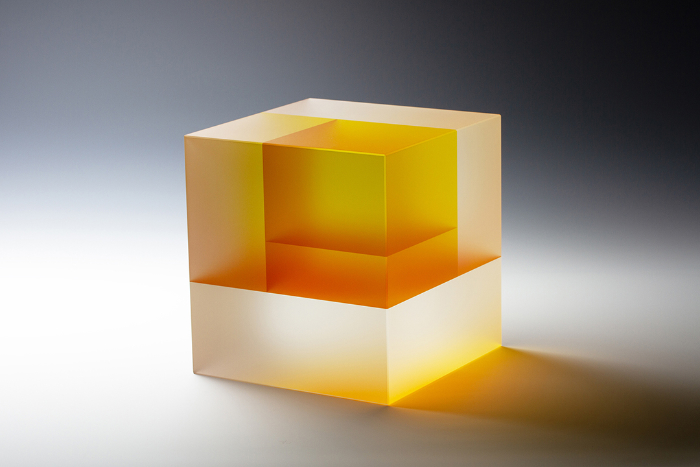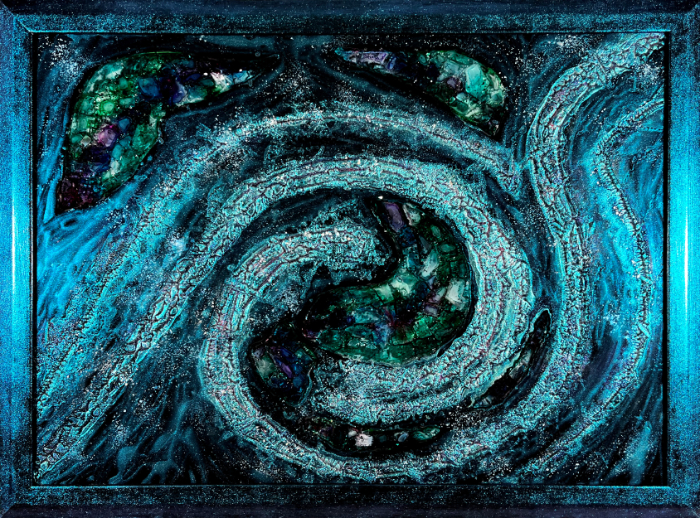
The depth of glass
Carolin Zibulka explains how her family’s secret glass ‘lavacoating’ technique is evolving as she develops her practice, reinforcing her connection with her father and viewers’ connections with her art.
From an early age, glass was more than just a material to me – it was a medium full of secrets and memories. My father, a skilled craftsman with great dedication and inventive spirit, spent many years developing a unique technique, which he passed on to me in 2020. What began as practical know-how became the foundation for my own artistic exploration of material, form, and meaning. Building on his method, I refined the process and shaped it into an independent artistic technique that I call ‘lavacoating’. What emerged was not only a new form of expression but also a generational connection – a creative lineage that unites tradition, intuition, and invention.
The origin of lavacoating
Lavacoating is more than just a technique – it is a connection between past and present, craftsmanship and free expression, father and daughter. The process begins on the reverse side of glass: I apply various materials layer by layer, each one requiring at least 24 hours to dry. Only at the very end is the piece sealed – and turned around. That moment when the image reveals itself for the first time is always an act of discovery. I see the result just as everyone else does – without knowing until that point exactly how depth, structure, and colour will ultimately interact. This trust in the process, combined with skilled precision and inner intuition, lies at the core of my work.
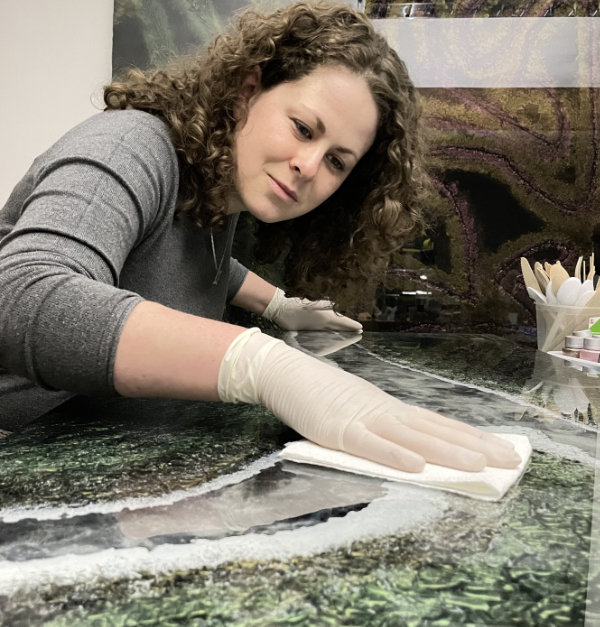
Intuition meets structure
My work rarely begins with fixed sketches or plans. Most often, I start with an inner atmosphere, a feeling, or a colour mood. The creation unfolds slowly and organically – with pauses, redirection, and moments of surprise. Often, it feels as though the material itself guides me, suggesting paths I hadn’t intended.
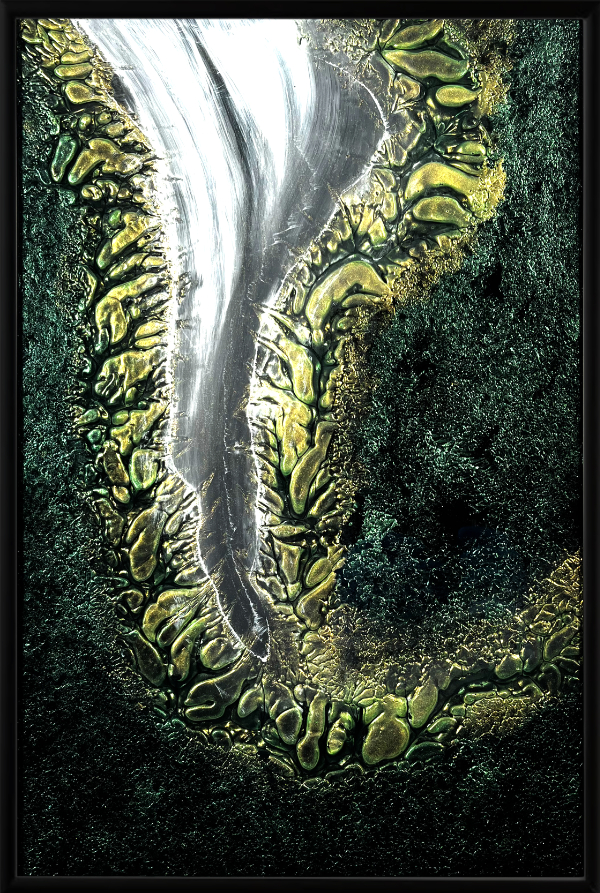
An invitation to interpretation
My art isn’t about conveying a clear message. Instead, I see my pieces as open spaces, full of associations, memories, and emotional resonance. Every viewer brings their own meanings, stories, and feelings. That’s what fascinates me about art: this quiet, often intimate, dialogue between artwork and person.
Tools and secrets
When asked about my favourite tool, I usually respond with a smile. This is not because I don’t want to answer – but because my technique, the exact ingredients, and the process itself are a small family secret. It’s like a recipe handed down and further developed across generations. This secrecy is part of the magic – it preserves the uniqueness of my work and keeps the connection to my father alive.
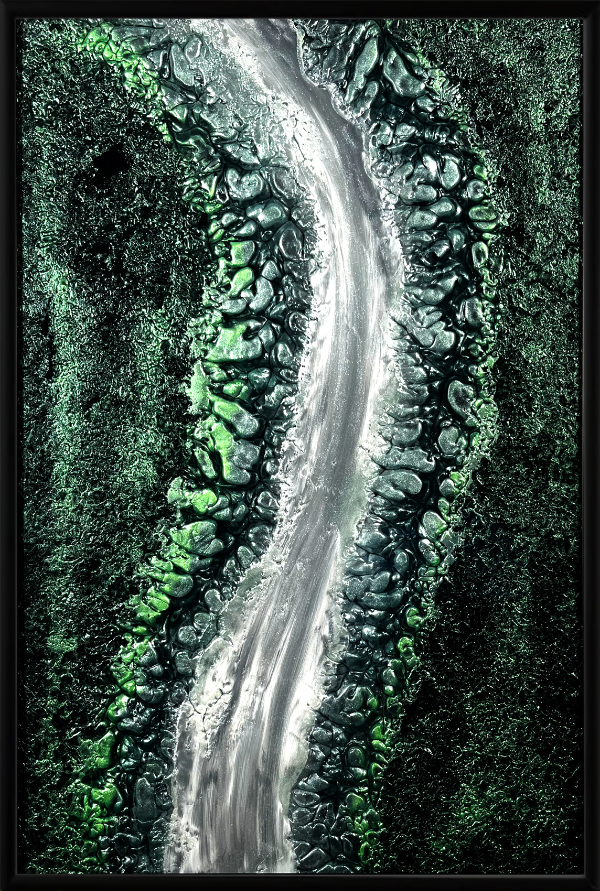
My favourite piece: ‘Aqua Mystique’
A piece that holds special meaning for me is ‘Aqua Mystique’. It’s the deepest image I’ve created so far – in every sense. The structure, the way light moves through it, the colour transitions between water and light – everything came together in a way that even surprised me. Aqua Mystique represents a turning point in my artistic journey, a moment of trusting the invisible during the process.
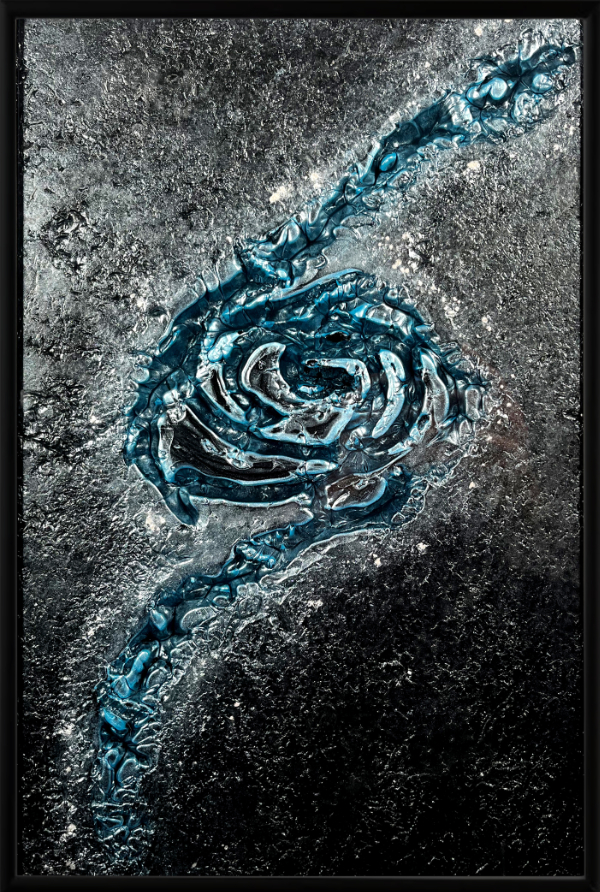
Exhibitions, presence and encounters
Since 2023, my work has been shown at international glass events, art markets, and group exhibitions in the Netherlands, Belgium, Switzerland and Germany. In 2024, I was invited to join the artist roster of Gallery O in Essen – a significant milestone in my artistic development. A special highlight awaits in autumn 2025, when my piece ‘Azure’ will be part of the 5th International Biennale of Glass at the National Gallery Kvadrat 500 (18 September – 30 November 2025) in Sofia, Bulgaria. It is a great honour to be included in this prestigious exhibition. I will be in Sofia from 18-20 September to present my work in person and chat with visitors.
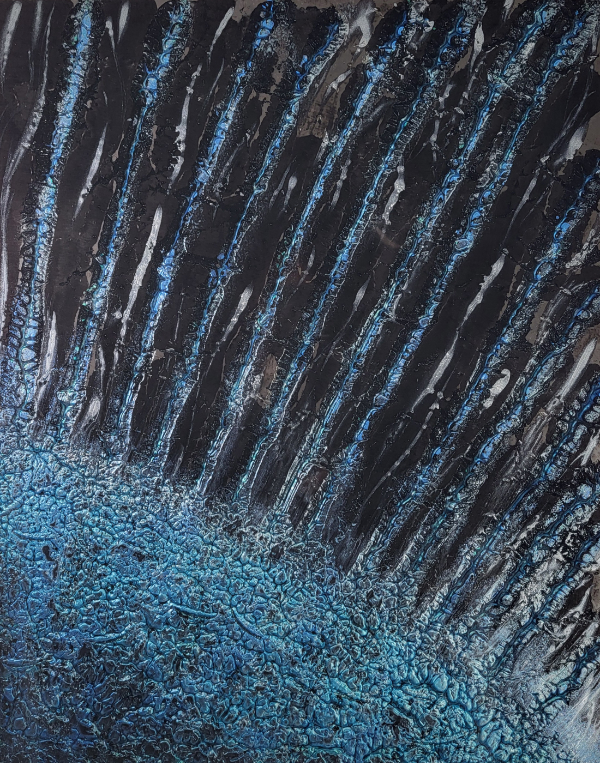
In addition, further international collaborations are in the works – including a promising project linked to Australia, which will be officially announced soon.
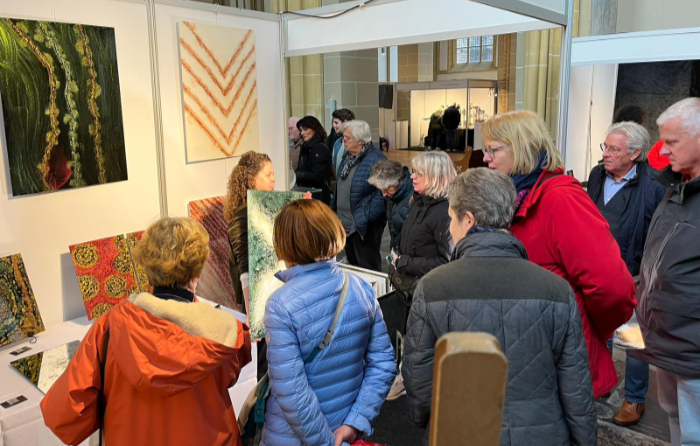
Looking ahead
This year, I aim to further establish myself as a glass artist and share my work – which is still relatively new and lesser-known – with a broader audience. It’s important to me to make my technique more visible and bring my art into wider national and international spaces. At the same time, I’m thinking about how lavacoating could evolve – perhaps through new formats, the integration of light, or collaborative projects with other artists.
Many ideas are still taking shape – and that’s what makes the process exciting. One long-term goal particularly close to my heart is to organise an exhibition in complete darkness – in collaboration with other female glass artists. Early planning for this is already underway, and I look forward to turning this project into reality, step by step.
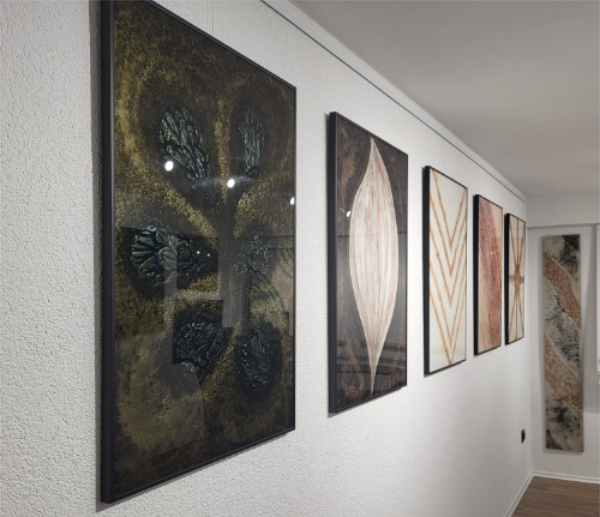
And finally…
To me, glass is not just a material – it’s a mirror for emotion, memory, and movement. Each piece contains a spark of origin, an echo of the voices that have shaped me. And perhaps that’s the greatest gift my work offers: it creates connection – quiet, profound, and human.
Discover more about Carolin Zibulka via her website: https://lavacoating.de and Instagram: @3d_glassart_kleve
Main feature image: ‘Nebula’ was created using Carolin’s secret lavacoating technique. All photos courtesy of the artist.
